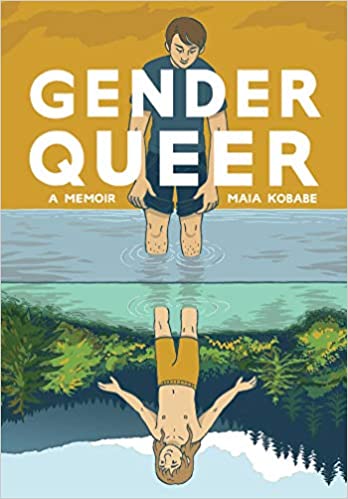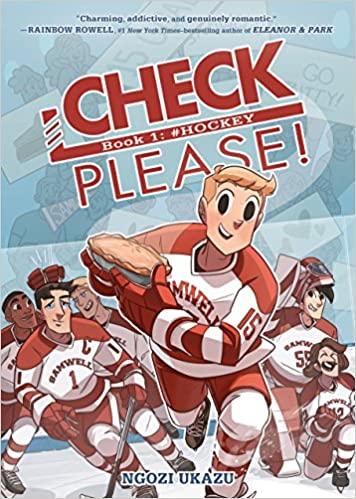This month we have seen an aggressive push across the country to censor a specific set of books in libraries and schools. It seems like we can’t go a day without hearing about a new book challenge or a disrupted school board meeting. One of the leading books behind this uproar is Maia Kobabe’s Gender Queer: A Memoir. CBLDF recently released a statement in support of the graphic novel.
It is easy to get wrapped up in the wack-a-mole censorship challenges. However, it is important to shed light on the folks who have been on the front line with these challenges defending First Amendment rights. Below are a few highlights of inspiring events from the past several weeks in Rhode Island, Michigan, and Virginia.
Gender Queer in Rhode Island
Earlier this month, a parent filed a complaint to the police against North Kingstown High School and East Greenwich High School in Rhode Island. The target was once again the award-winning graphic novel Gender Queer. And again, it was being misrepresented as “pornography.”
Phil Auger, the superintendent of the North Kingstown School District, responded to the complaint.
“Any discussion of banning a book should not be taken lightly. The book in question deals with mature questions of sexual identity, and there are students in our high school that are asking these questions. As part of a public school population LGBTQ youth have as much of a need and a right to have access to library resources to support their overall health and well being.” [italics added]
Several board members have also supported the book in committee meetings. The Chairman reiterated Auger’s point noting that the book is in the high school library. High school students are not children but young adults who can benefit from this book and others like it. Parents have the right to decide what their kids read, but they can not deny access to the graphic novel for others.
Check, Please! in Michigan
In Michigan last Wednesday, a trustee for the library and a Byron Township supervisor objected to the graphic novel Check, Please! by Ngozi Ukazu. One even referred to it as “trash.” Allegedly, the book was taken off a cart and seen by a child younger than the target audience. The trustee and supervisor demanded the removal of the book.
Lance Werner, the executive director of the Kent District Library, responded,
“You guys are asking us to violate the Constitution and impinge on people’s freedom. No one should want the government to tell them what to read. That goes against everything we stand for in this country. And the other thing we can’t do is we can’t step in the shoes of the parent…. Nor should anybody want the government to raise their kids.”
Werner continued that the federal government protects all books except obscenity, child pornography, and hate speech. The township supervisor threatened to remove funding from the library, suggesting they might turn it into a “shoe store.” Unflinching, Werner responded, “Well, I hope that doesn’t come to pass. You know we care about the community, and we care about you. But we’re not willing to violate the Constitution.”
One parent who was there in defense of the book reminded the attendees that it is the responsibility of parents to know what their children are reading and if it is appropriate for their family. It is not the responsibility of the library.
Students Organize in Virginia Beach
This Tuesday, a group of students from Virginia Beach spoke at their local school board meeting to defend against recent challenges to their reading material. Two board members brought up the challenge of six books after parent complaints. One of those six books challenged in the Virginia Beach school library system is Gender Queer.
In total, fifteen students spoke at the board meeting to defend the books in question. One student pointed out the mischaracterization of sexual trauma as “pornography,” and several other students spoke of the need for representation. They feel representation is especially lacking for BIPOC and LGBTQ students.
Much like recent events in PA, it is inspiring to see students standing up to be heard and expressing their First Amendment rights.
These three examples are important to acknowledge. They are examples of community members standing up for the First Amendment and for the representation and freedoms they want in their community. We recognize administration, parents, librarians, and students standing up for these books. We want to say thank you, and we are here to support any graphic novel challenges in the coming months.

